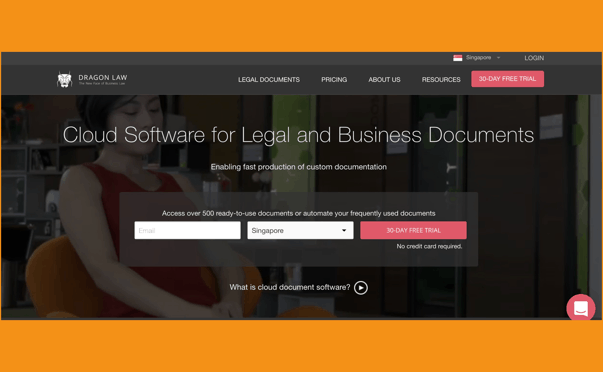It was no walk in the park.
According to a global study by BNP Paribas, it was found that Millennials are starting twice as many businesses as compared to their Baby Boomer counterparts. Starting out young is a great thing – few commitments, endless energy and big dreams.
When my partner and I, then 19, started our presentation design services business back in 2013, it was no walk in the park.
As young Diploma grads, there were numerous pitfalls that awaited us on our early journey, from social pressures to barriers in doing business, all simply because we were ‘too young’.
If you’re keen on freelancing in Singapore or intend to start your business at a tender age, be sure to heed these pitfalls:
1. Ageism Of A Different Kind
I can’t tell you the number of times my peers and I have been asked: what makes you qualified to do this?
Generally, older people will tend to doubt your abilities because of your age and perceived inexperience. Not to mention, Millennials haven’t exactly made a good name for themselves over the years. Some would stereotype Millennials as entitled and impatient.
If you’re selling a service, they may not be willing to pay as much or they seek out someone else.
A way to get around this is to collect social-proof in the form of testimonials and case studies. Instead of you tooting your own horn about how great you are, let others do it for you.

Early on, your social clout will be largely defined by your recommendations, not what you say about yourself. For example:
Payroll software company, PayBoy, features testimonials from satisfied clients on their site to build trust in their platform for new users.

The next time someone older casts doubt on your abilities purely based on your age, you’ll have the ammunition to be confident in your work, as well as the fodder to convince them to trust in your business.
2. Social Pressure To Conform
Imagine this: all your friends have completed their university education and are now employed, while you are still in the midst of pursuing your entrepreneurial endeavours. Your parents start to question your decisions and you struggle to reply when someone asks: ‘So what do you do?’

The grass tends to look greener on the other side, and you start to have second thoughts about why you even decided to take that gap year to explore your ideas. The thought of being left behind is scary.
Entrepreneurship is increasingly becoming a popular ‘career option’ with youths. However, it is still the path less travelled and the majority of your peers (sometimes even yourself) still harbour dreams of going to college and eventually getting employed by a MNC.
While it’s not a bad thing, but when your Facebook feed starts to fill up with stories of your peers progressing with their careers, it can leave you feeling anxious and uncertain. This happens especially when you are only one among your peers starting your own business.
The question then is, can you hunker down for a couple of years while knowing full well things might go awry?
A good way to keep yourself focused and sane is to meet and speak to other young entrepreneurs going through the same challenges. Think of it as a ‘mastermind’ group of sorts.
When you realize you’re not the only one struggling, it empowers you to try harder. It might also leave room to collaborate and grow together.
3. Spending Too Much, Too Fast
The worst thing to do when you lack capital: spending frivolously. Excited young entrepreneurs starting out tend to spend too much on unnecessary items like expensive clothing, a fancy office or unnecessary equipment. None of which actually helps to drive to your bottom line, but would leave you at a net loss before getting any business.

You can ask any seasoned entrepreneur and they’ll tell you that certain expenses which are closely tied to your ego are either non-essential or only start to become relevant after you’ve garnered your initial traction.
When you’re just starting out, you’ll need to get sales to make your business sustainable. If you’re not well-connected, start attending sessions in BNI (Business Networking International) or driving Facebook Ads to a landing page to collect leads.
You’ll want to be spending on things that will bring you profits, otherwise, you’ll find yourself being cash-strapped very quickly.
4. Not Learning From Other People’s Mistakes
There have been numerous instances where we could have avoided losing money if we had just swallowed our pride and asked someone more experienced.

The adage: “learn from the mistakes of others” rings true especially when running a business. The great thing about being young is that you are likely to have very few commitments (no kids and numerous bills to pay yet) and fearlessness to make as many mistakes as you want.
However, some people like to tout that you should seek failure while others believe that failure is not a requisite to success. Jason Fried, author of Rework and founder of 37Signals famously wrote that ‘Learning from failure is overrated’.
As you connect with more experienced entrepreneurs, ask questions and learn from their mistakes so that you can avoid them on your journey. Try Quora for those burning questions you have about entrepreneurship – it’s free and there’s a really supportive community living there.
Or, if you want to seek out experts for a small fee, head over to Clarity.FM and pay per minute to speak to experts on different topics, from Digital Marketing, Entrepreneurship and more.
5. Jumping In Head First Without Validating Ideas
‘Build it and they will come’ is a broken mentality. Without validation, you might end up building something nobody wants. You might have a lofty dream to build the next Facebook, but ask yourself whether you’re filling any gap in the market or if the numbers make sense.

I’ve met numerous entrepreneurs who have spent tens of thousands of dollars developing technological products only to realize that the market potential is unattractive or that someone else had already done it quicker and better.
To avoid this pitfall, do some simple projections of how lucrative your business could be. Ask yourself:
- How much of a margin can I make from each customer?
- How many customers are there in the market?
- How much of that market can I consistently acquire?

Another way is to start with a small iteration of your solution to test the market you’re after. For example, Dropbox started with a landing page and nothing else to validate latent demand of their product. They subsequently took this approach to experiment on other hypotheses.
With access to ad platforms like Facebook Ads, you can very easily drive traffic to landing pages to test if your ideas resonate with the market you’re targeting.
6. Letting Your Ego Get Ahead Of You
Millennials are widely known to be one of the most narcissistic individuals of our time. The whole recent media fiasco of Faves Asia resulted from a need for attention.

When running your business, it’s important to keep learning to ensure your knowledge remains relevant. When you experience a little bit of success early on, it’ll be tempting to bask in the attention and stay where you are.
The danger of that is you start to:
- Become resistant to feedback and fall to confirmation bias
- You can start to become arrogant and prideful
- Procrastinate on your goals
Basically, you may experience the Dunning-Kruger effect, where you tend to overestimate your abilities.
To avoid falling into ego traps early on in your entrepreneurship career, always surround yourself with others that seek to constantly improve. Michael Dell, CEO of Dell Inc. recommends ‘finding people who are smarter than you’ and to ‘never be the smartest person in the room’
Reason: It’s been proven that intelligence can be boosted via osmosis in challenging careers. The only caveat is it might lead moments of imposter syndrome, but wouldn’t you prefer to be the average amongst top-performers?
7. Not Being Legally Covered
Inexperience and lack of budget to hire a proper lawyer leaves open gaps for people to take advantage of you. Granted, not everyone tries to fleece young entrepreneurs, but they are particularly vulnerable if they aren’t savvy with legal basics.
For instance, to conduct business here in Singapore, you’ll need to register a business entity via ACRA, but many neglect to do so – it’s tantamount to avoiding tax if someone decides to be a tattletale.
In my opinion, one of the most basic forms of legal education that young entrepreneurs need to get savvy with is being able to deal with simple service contracts.
When paying providers/suppliers:
An acquaintance of mine once got coerced by a dubious company into paying $20,000 for a website because they had accidentally signed a contract agreeing to pay a deposit to this company. When they indicated they did not want to start the project, the provider demanded the deposit even though no work had been done at that point.
If they were aware of basic contract law, they’d be able to avoid the whole episode by either not signing the contract or cutting the project short since there was no work done. Always start by learning how to protect your business. Here is a basic guide to contract law.
When working with customers:

If you provide a service, always have a contract to protect yourself and your client. So if anything goes wrong, you’ll be covered and also have a pre-agreed course of action to remedy the situation.
Platforms like Docracy let you copy and edit existing contracts to make them your own for free. If you’re looking for a paid option, Dragon Law’s trial plan could work well to get you setup and legally protected on your own.
If you’re lucky enough to be based in Singapore, it still is the best place to do business. So don’t let these pitfalls bog you down. Be aware of these and start thriving when you start!

















